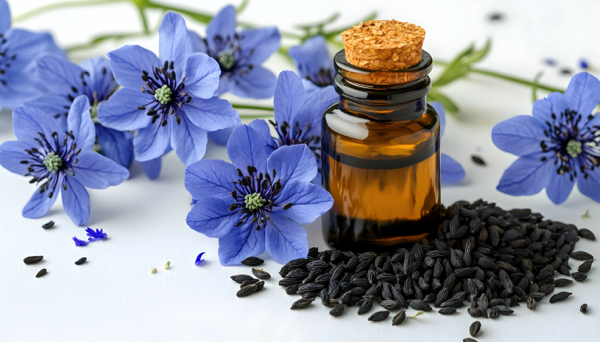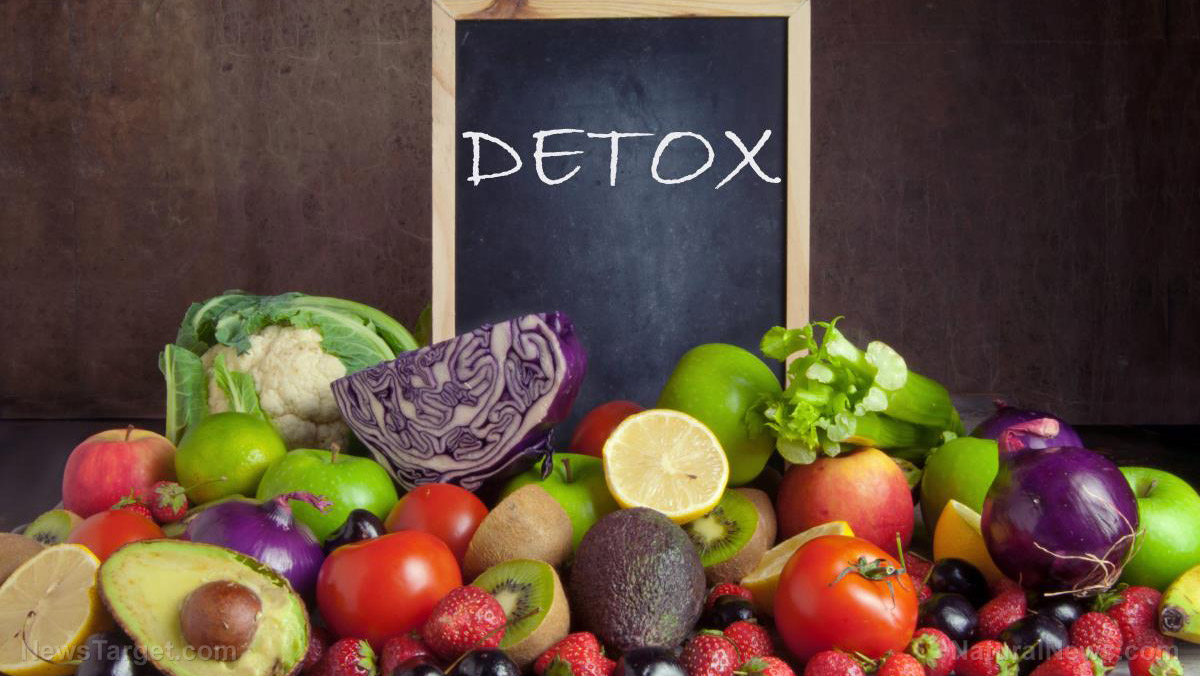The forgotten hormone hero: How vitamin C quietly balances mood, stress and reproductive health
03/25/2025 / By Willow Tohi

- Vitamin C is critical for the HPA axis, adrenal function and cortisol regulation, helping balance mood and reduce stress. Studies show it lowers anxiety and supports emotional well-being.
- It boosts progesterone levels, improves ovarian function and enhances fertility. For pregnant women, it aids fetal development by supporting collagen formation.
- Vitamin C alleviates endometriosis pain, reduces heavy menstrual flow by strengthening capillaries, and acts as a natural antihistamine to ease PMS-related allergies.
- Beyond immunity, it’s a potent antioxidant that protects against chronic diseases (heart disease, cognitive decline) and promotes skin health via collagen production.
- Rich sources include acerola cherries, citrus fruits and leafy greens. Supplements can help meet needs, but consulting a healthcare provider for dosage is advised.
In the realm of natural health, the spotlight often shines on popular nutrients like omega-3s, magnesium and probiotics. However, one essential nutrient that frequently flies under the radar is vitamin C. While many are aware of its role in boosting the immune system, few realize its profound impact on hormonal balance, mood regulation and overall well-being. This article delves into the multifaceted benefits of vitamin C, highlighting its importance in maintaining optimal health.
The hidden role of vitamin C in hormonal balance
Studies show vitamin C plays a role in supporting mood, reducing stress and balancing hormones.
A crucial component for the HPA axis
Vitamin C is not just a cold-fighting powerhouse; it plays a pivotal role in the hypothalamic-pituitary-adrenal (HPA) axis, which governs the body’s stress response. The adrenal glands, which are central to this axis, contain the highest concentration of vitamin C in the body. According to registered dietitian nutritionist Emily Achey, “The adrenal glands house the greatest concentration of vitamin C in the whole body and are necessary for proper cortisol output.” This means that vitamin C is essential for regulating cortisol, the body’s primary stress hormone.
Balancing mood and stress
By supporting the adrenal glands, vitamin C helps maintain emotional well-being. In times of stress, the body uses up vitamin C at a faster rate, making it crucial to replenish this nutrient. Studies have shown that supplementing with vitamin C can reduce feelings of stress and anxiety. For instance, a study on students found that those who took 500 mg of vitamin C daily experienced lower levels of anxiety compared to those who did not.
Enhancing progesterone levels
Vitamin C also plays a role in increasing progesterone levels, a hormone that is crucial for fertility and overall hormonal balance. A randomized control trial found that women who supplemented with vitamin C had higher progesterone levels than those who did not. This is particularly relevant for women with polycystic ovary syndrome (PCOS), who often struggle with low progesterone levels.
Vitamin C: A catalyst for fertility and reproductive health
Boost hormone health and fertility and support a healthy pregnancy with vitamin C.
Boosting fertility
Vitamin C’s role in fertility is well-documented. It is essential for the production of collagen, a protein that supports the structure of the ovaries and uterus. Studies have shown that vitamin C can improve follicle integrity and even restore follicular reserves in aging ovaries. In one study, women who supplemented with 750 mg of vitamin C showed increased progesterone levels and a 25% pregnancy rate within six months.
Supporting Pregnancy
For pregnant women, vitamin C is vital for the development of the fetus. It aids in the formation of collagen, which is crucial for the growth of the baby’s bones, skin and connective tissues. Additionally, vitamin C’s antioxidant properties protect both the mother and the baby from oxidative stress.
Vitamin C and women’s health: Beyond hormones
Vitamin C supports women’s health in multiple ways.
Alleviating endometriosis symptoms
Endometriosis, a painful condition where tissue similar to the uterine lining grows outside the uterus, can be mitigated by vitamin C. A study found that participants who took vitamin C and E experienced a 43% reduction in chronic pain. This is likely due to the antioxidants’ ability to reduce inflammation.
Managing heavy periods
Vitamin C’s anti-inflammatory properties also make it beneficial for women experiencing heavy periods. A study using a combination of vitamin C and bioflavonoids showed that 89% of women had a reduction in menstrual flow. The strengthening of capillary walls by vitamin C is believed to contribute to this effect.
Acting as a natural antihistamine
Vitamin C can also act as a natural antihistamine, providing relief for those suffering from allergies. It helps temper the body’s allergic response by reducing the production of histamines, which are inflammatory compounds. This can be particularly helpful for women experiencing PMS symptoms exacerbated by histamine release.
The broader health benefits of vitamin C
Vitamin C is an essential nutrient that supports your immune system, heart, brain, skin and hormones.
Immune system support
While vitamin C does not “boost” the immune system, it is crucial for its proper functioning. It aids in the production of white blood cells and protects these cells from oxidative damage. Regular supplementation has been shown to reduce the duration and severity of colds.
Antioxidant powerhouse
As one of the most potent antioxidants, vitamin C neutralizes free radicals, which are linked to chronic diseases and aging. This makes it a key player in preventing conditions like heart disease, cancer and Alzheimer’s.
Cardiovascular health
Studies have indicated that vitamin C may contribute to better heart health. One study found that participants who took 700 mg of vitamin C daily for ten years had a 25% lower risk of heart disease. Additionally, vitamin C supplementation has been shown to reduce bad cholesterol and triglycerides.
Cognitive function
Lower levels of vitamin C have been associated with impaired cognitive function. By combating oxidative stress, vitamin C may help protect against cognitive decline and dementia.
Skin health
Vitamin C is essential for collagen production, which is vital for healthy skin. It helps reduce the appearance of fine lines and wrinkles, evens out skin tone and protects against sun damage.
How to incorporate more vitamin C into your life
To reap the benefits of vitamin C, focus on incorporating vitamin C-rich foods into your diet. Some of the best sources include:
- Acerola Cherries: 1/2 cup contains 822 mg of vitamin C
- Rose Hips: Six rose hips contain 119 mg of vitamin C
- Chili Peppers: One chili pepper contains 109 mg of vitamin C
- Kiwis: One kiwi contains 71 mg of vitamin C
- Broccoli: 1/2 cup of cooked broccoli contains 51 mg of vitamin C
- Strawberries: One cup of strawberries contains 89 mg of vitamin C
- Oranges: One medium-sized orange contains 70 mg of vitamin C
- Kale: One cup of chopped raw kale contains 80 mg of vitamin C
For those who find it challenging to get enough vitamin C from food alone, supplements are a convenient option. However, it is important to consult with a healthcare provider to determine the appropriate dosage.
In conclusion, vitamin C is an indispensable nutrient that supports hormonal balance, mood regulation and overall health. By prioritizing vitamin C-rich foods and considering supplementation, you can enhance your well-being and vitality.
Sources include:
Submit a correction >>
Tagged Under:
fertility, hormones, men's health, mental, mood, natural cures, natural health, nutrients, phytonutrients, plant medicine, remedies, vitamin C, women's health
This article may contain statements that reflect the opinion of the author
RECENT NEWS & ARTICLES
COPYRIGHT © 2017 HEALING NEWS




















